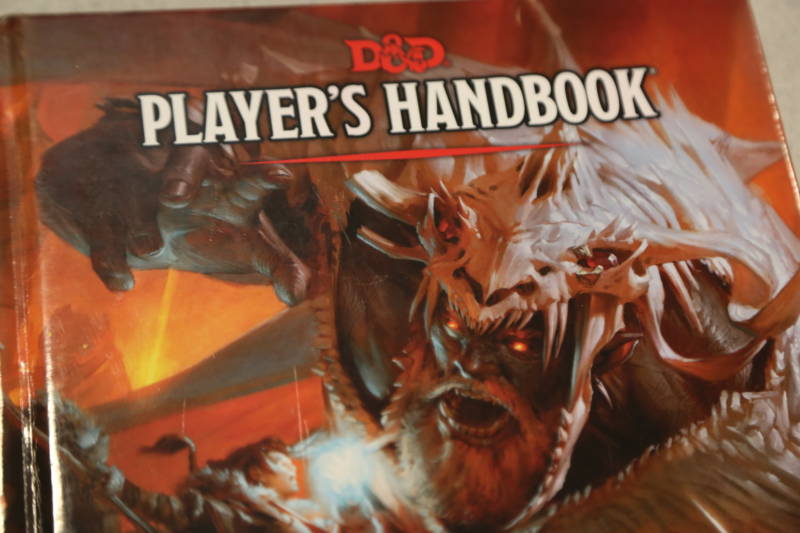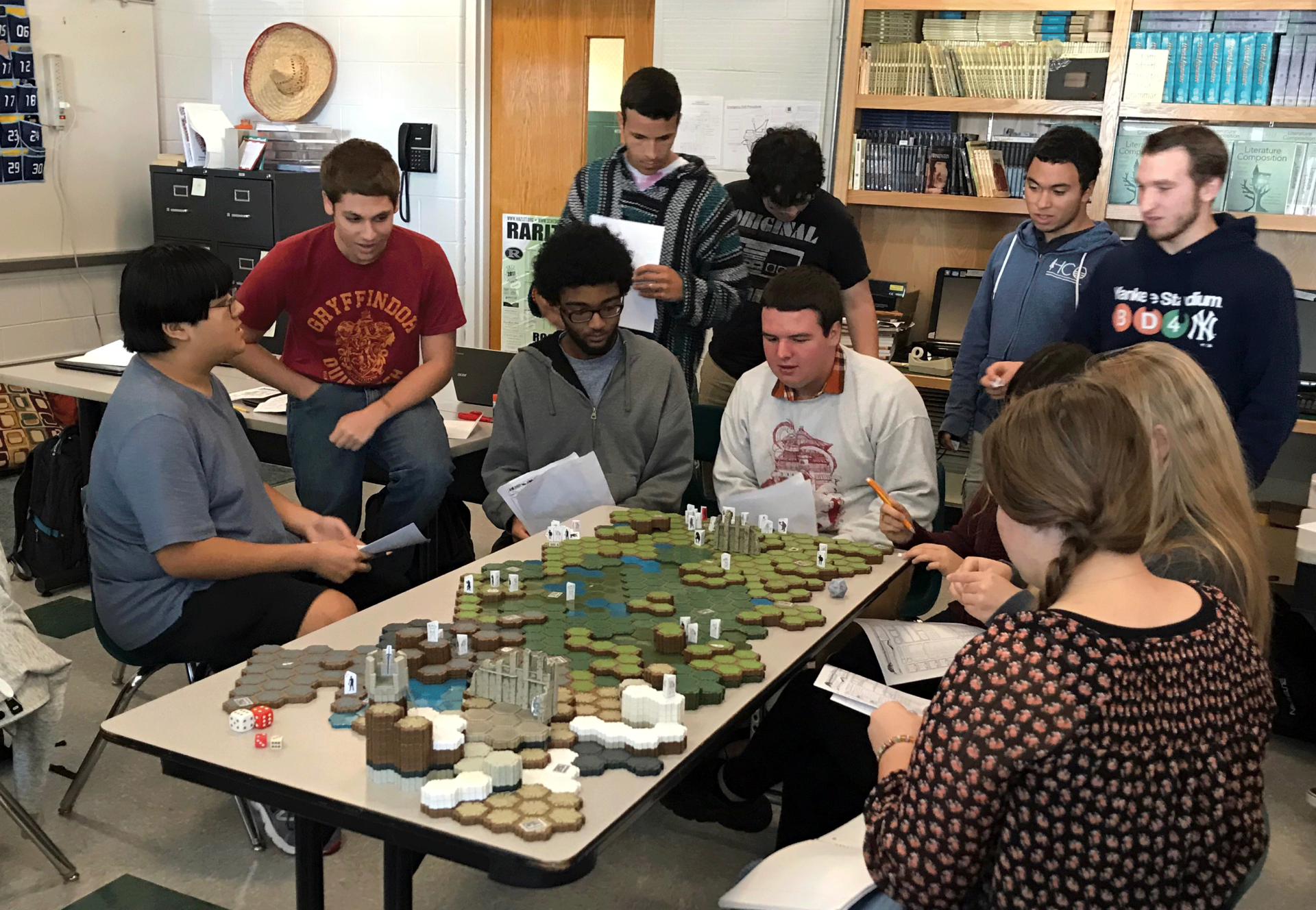Despite its outward appearance as a frivolous escape from reality, the fantasy genre has profound metaphorical correspondences to the real world. Tolkien’s influential Lord of the Rings, for example, has been interpreted as symbolically capturing the horrors he experienced as a soldier in World War I, as an allegory of power, and as an exploration of addiction. The enchanted settings are veiled representations of universal human experiences and emotional truths.
Paradoxically, for kids, the fantasy genre can be both an escape from reality while simultaneously providing an indirect commentary on everyday life. Bullies become dragons, malevolent gods are the feared adults in their lives, and a labyrinthine dungeon filled with puzzles and ghouls become a metaphor for school The fantasy world is sufficiently removed from reality that kids are empowered to tackle difficult subjects at a safe emotional distance. Confronting these challenges, even within the symbolic realm of sword-and-sorcery, may help provide scaffolding to improve emotional awareness and help players operate more confidently in the real world.
“I have seen the quietest student in class become the biggest voice at the gaming table. It is heartwarming to watch these students’ confidence grow to such a degree from a game, and a great triumph to see them carry that over into the classroom,” said Houston-area teacher Kade Wells.
A cursory Google search yields pages of stories from adults who credit D&D for making them more caring and compassionate, better parents, and even saving their lives. In almost every case, they attribute their best social and emotional qualities to an adolescence spent role-playing with friends in a parallel universe woven by their collective imagination.
The Transformative Power of Role-Play
Assuming a role and experimenting with alternate views, identities and perspectives lies at the heart of how games like Dungeons & Dragons have the potential to foster SEL skills, including empathy and self-awareness.
“Good players must act not according to one’s own disposition but to that of the character, whose experiences are almost certainly totally different,” said Foglia.
The characters may be fictional, but playing them requires a cognitive and emotional investment that is rooted in the player’s real psychological life. Students can try on different ways of being, and safely push boundaries that may normally limit them in their day-to-day life.
“In a real sense you 'become' the character you play," said Slater. "When your character is threatened with death it gives you a jolt. In almost every adventure I’ve run someone has died, and you can see the excitement pass through the room. Things get real, real fast." Unlike most video games, a character’s death in D&D is permanent, so the stakes are high.
Sarah Roman is a New Jersey public high school teacher who used Dungeon & Dragons in her English classes and co-founded Teaching with Dungeons & Dragons with Wells. Since incorporating D&D, she found her students were more willing to help each other, they communicated more diplomatically, and it even brought some of her quieter kids out of their shell. She recalls parents contacting her in gratitude for the changes they had noticed in their children.
“D&D really forces students to become someone else for a little while. We’ve been seeing the role-playing aspect become heavily used in mental health groups, and therapists have been employing role-play as a way to promote empathy, social skills, and resilience. In that vein, we have to remember that teachers also play the role of the therapist from time to time,” said Roman.
Therapy groups like Game to Grow, RPG Therapeutics, Take This and the Bodhana Group recognize the benefits of using role-play as a viable course of treatment. They use D&D and other games to treat a variety of conditions, provide social-emotional support for teens and children, and even help them contend with gender.
“I’ve known at least two gamers that regularly played different gender characters, e.g., a male playing a female character,” said Slater. “D&D allows you to adopt a role, and that can be a powerful tool for self-exploration.”
Narrative therapy is another relevant therapeutic approach that encourages patients to rewrite the stories of their lives, a concept related to Maria Laura Ruggiero’s idea of hacking personal narratives. Michael White, a narrative therapy pioneer, discusses the approach in his 2007 book Maps of Narrative Practice: “Effective therapy engages people in the re-authoring of life's compelling plights in ways that arouse curiosity about human possibility and invoke the play of imagination. It opens space for varying perspectives while assisting people to participate fuller and with a stronger voice of authorship in constructing the stories of their lives.”
As an active exercise in role-play and collaborative storytelling, Dungeons & Dragons merges elements of both therapeutic approaches. Players experiment with different identities, and simultaneously enact the skills to reimagine their personal narratives. Furthermore, these ingredients blend within a magic circle of play, an essential element for learning and development championed by celebrated developmental psychologists Jean Piaget and Lev Vygotsky.
“Psychological studies are clear that play is the primary means by which humans (and all other mammals) acquire the life skills they need to succeed. Intrinsic motivation preserves and reinforces an ideal brain state for learning, processing, and retaining information. Children naturally want to play-practice those skills which are most valuable to human adults,” said Foglia.



